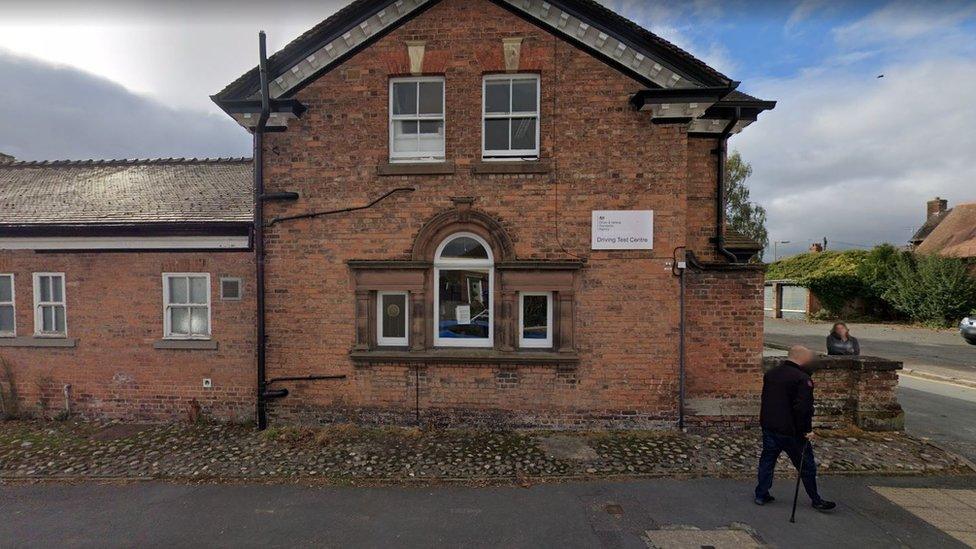Whitchurch civic centre: demolition plan after Raac closure
- Published
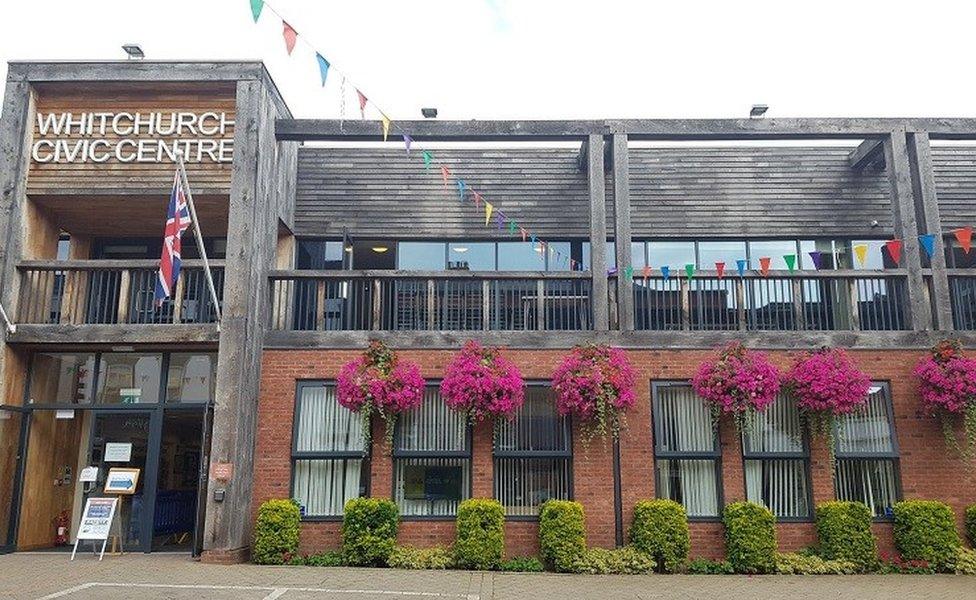
Raac was discovered at Whitchurch Civic Centre during maintenance work
A report has recommended the demolition of a town's civic centre following the discovery of Raac.
Most of the building in Whitchurch, which also houses the town's library, was shut in September when the unsafe concrete was discovered.
Shropshire councillors will be presented with six options for the building when they meet next Wednesday.
But the MP for North Shropshire, Helen Morgan, has insisted a replacement for the centre is essential.
The report, external for the authority's cabinet said the cost of repairing the building would be "significant" and "would be uneconomic and not viable for the council".
The six options it sets out include doing nothing, carrying out repairs which could cost up to £2.5m and demolishing the building and making the land available for redevelopment.
Another option would be demolishing the site and building a replacement civic centre, but the report said this could cost the authority up to £7.6m.
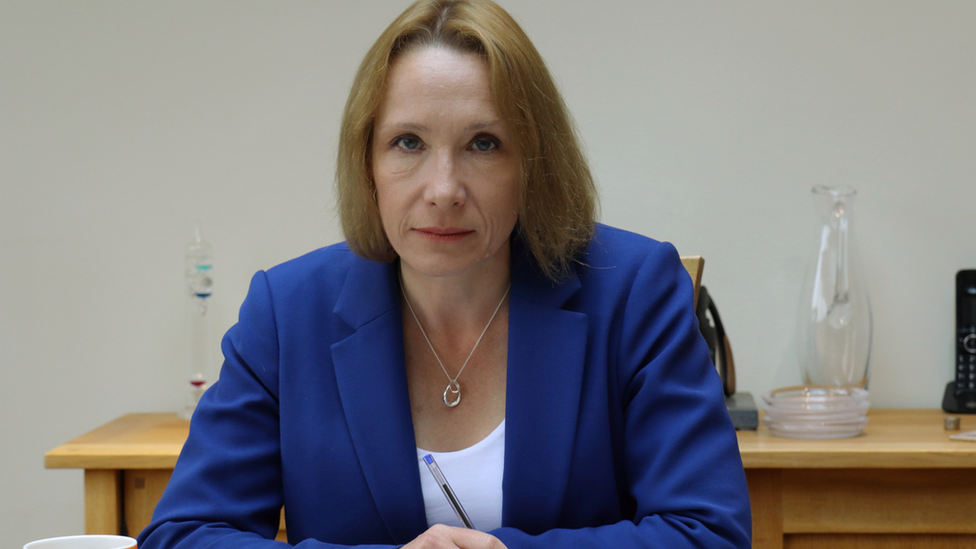
Helen Morgan said she would fight to get a replacement for the civic centre
The report said the redevelopment of the site would include an "opportunity to deliver community services within the heart of the town centre as part of a mixed use scheme".
But Mrs Morgan said: "Losing the Civic Centre would rip the heart out of Whitchurch unless a replacement is funded."
She said Shropshire Council had a duty to support the "economic and social development of our market towns" and added: "Residents in Whitchurch are rightly outraged at these proposals."
Dean Carroll, the cabinet member responsible housing and assets, said library services would continue in the town and promised to "work closely with Whitchurch Town Council to help them identify a new civic venue".
Less durable
The issue of Raac - reinforced autoclaved aerated concrete - came to prominence last year when structural issues appeared in schools and other public buildings.
It is a lightweight material that was used mostly in flat roofing, but also in floors and walls, between the 1950s and 1990s.
It is a cheaper alternative to standard concrete, is quicker to produce and easier to install.
But it is less durable and has a lifespan of around 30 years.

Follow BBC West Midlands on Facebook, external, X, external and Instagram, external. Send your story ideas to: newsonline.westmidlands@bbc.co.uk, external
Related topics
- Published14 November 2023
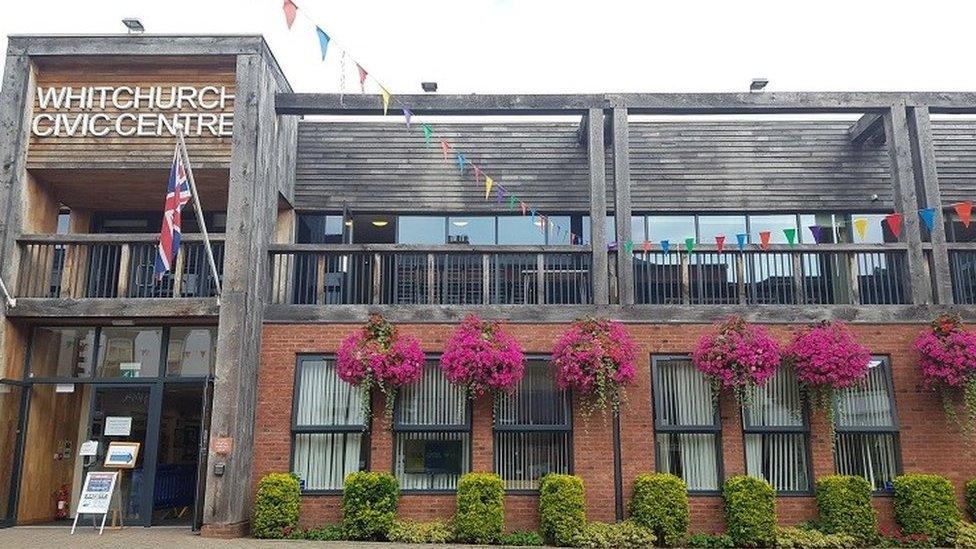
- Published8 November 2023
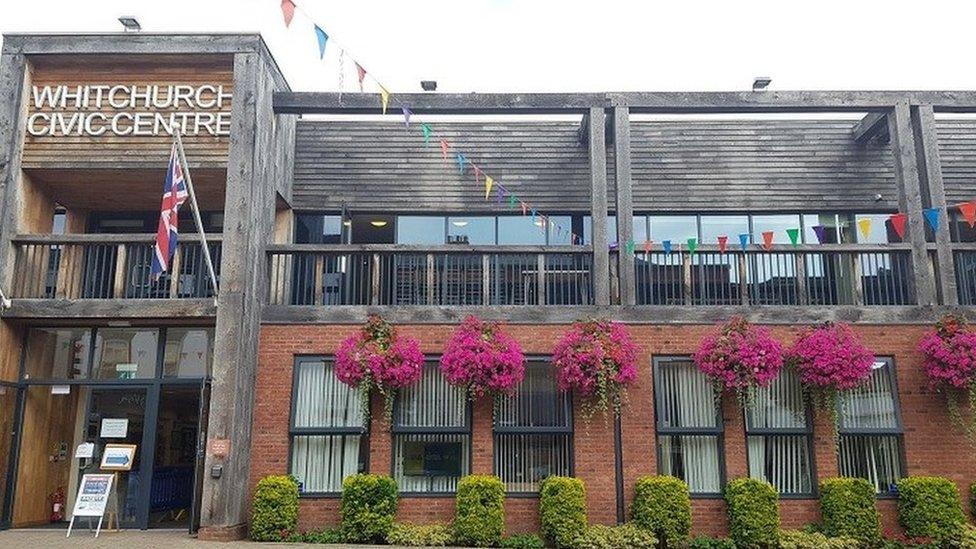
- Published24 September 2023

- Published13 September 2023

- Published8 September 2023
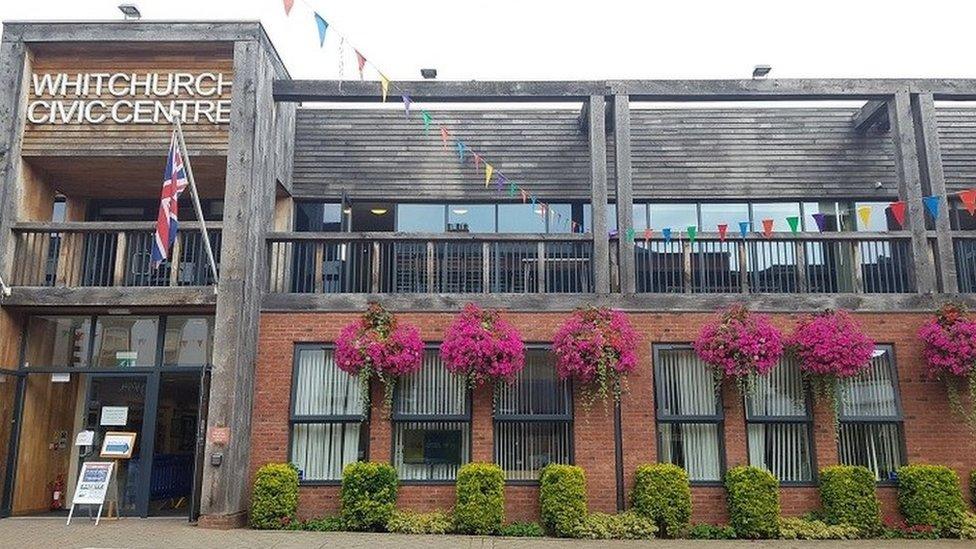
- Published4 April 2023
